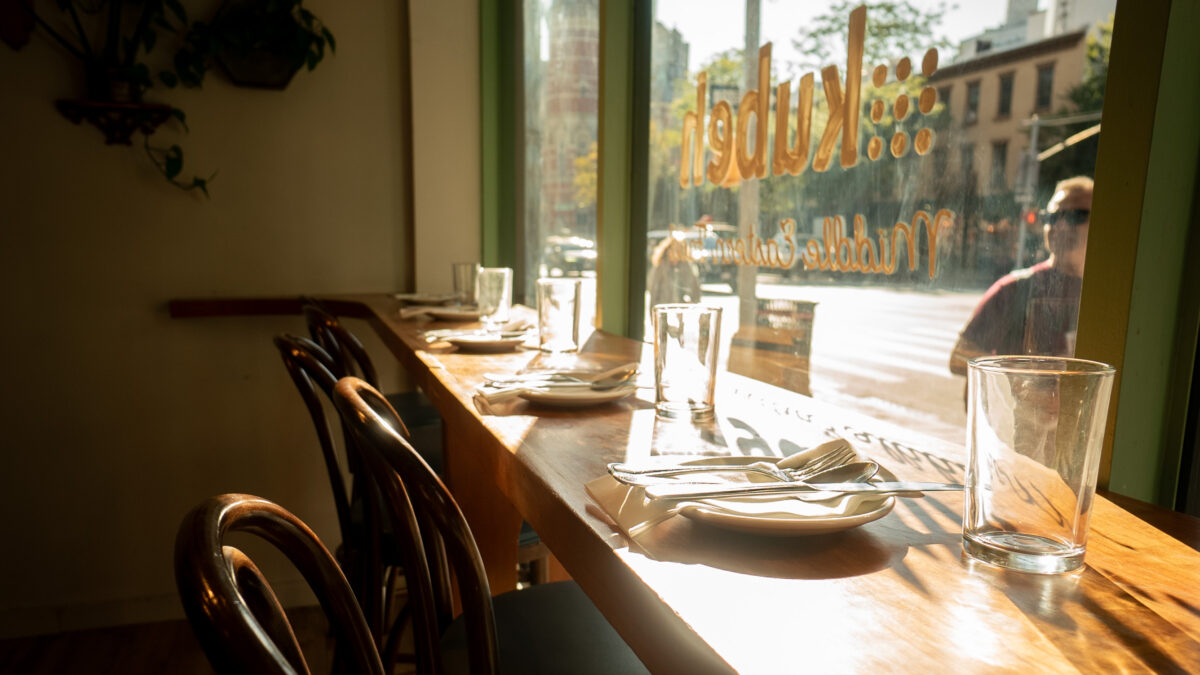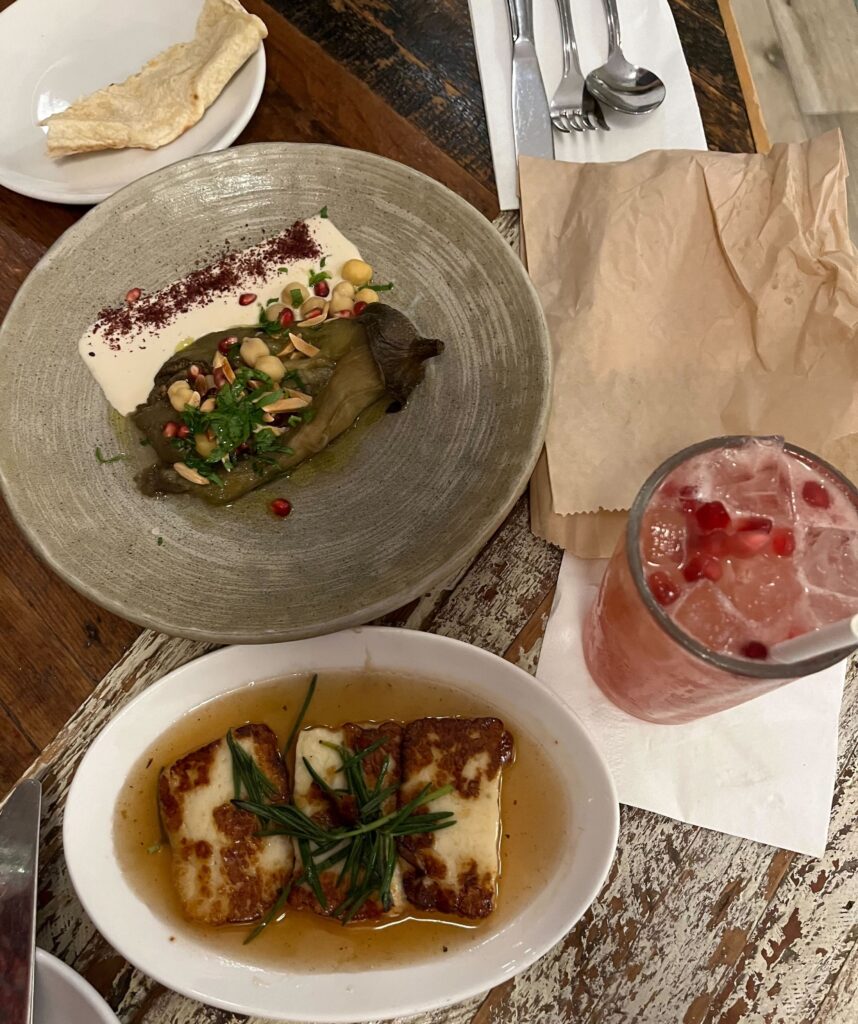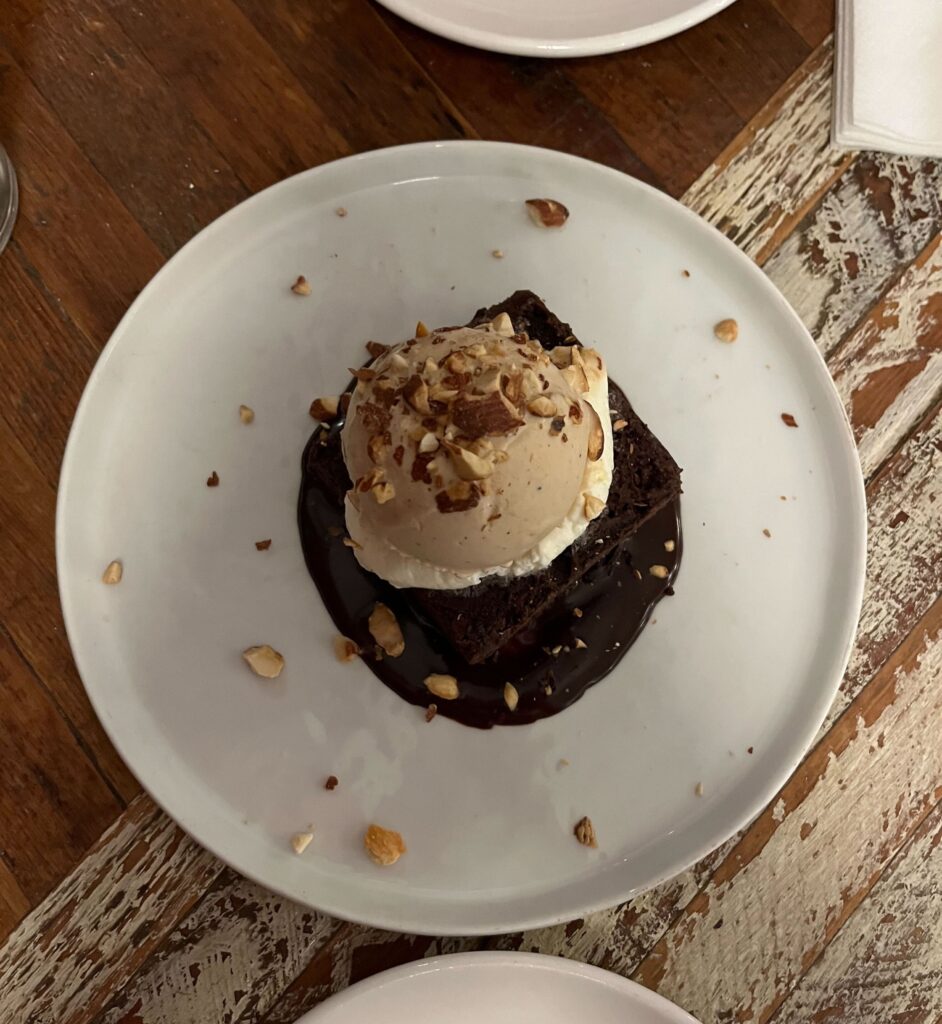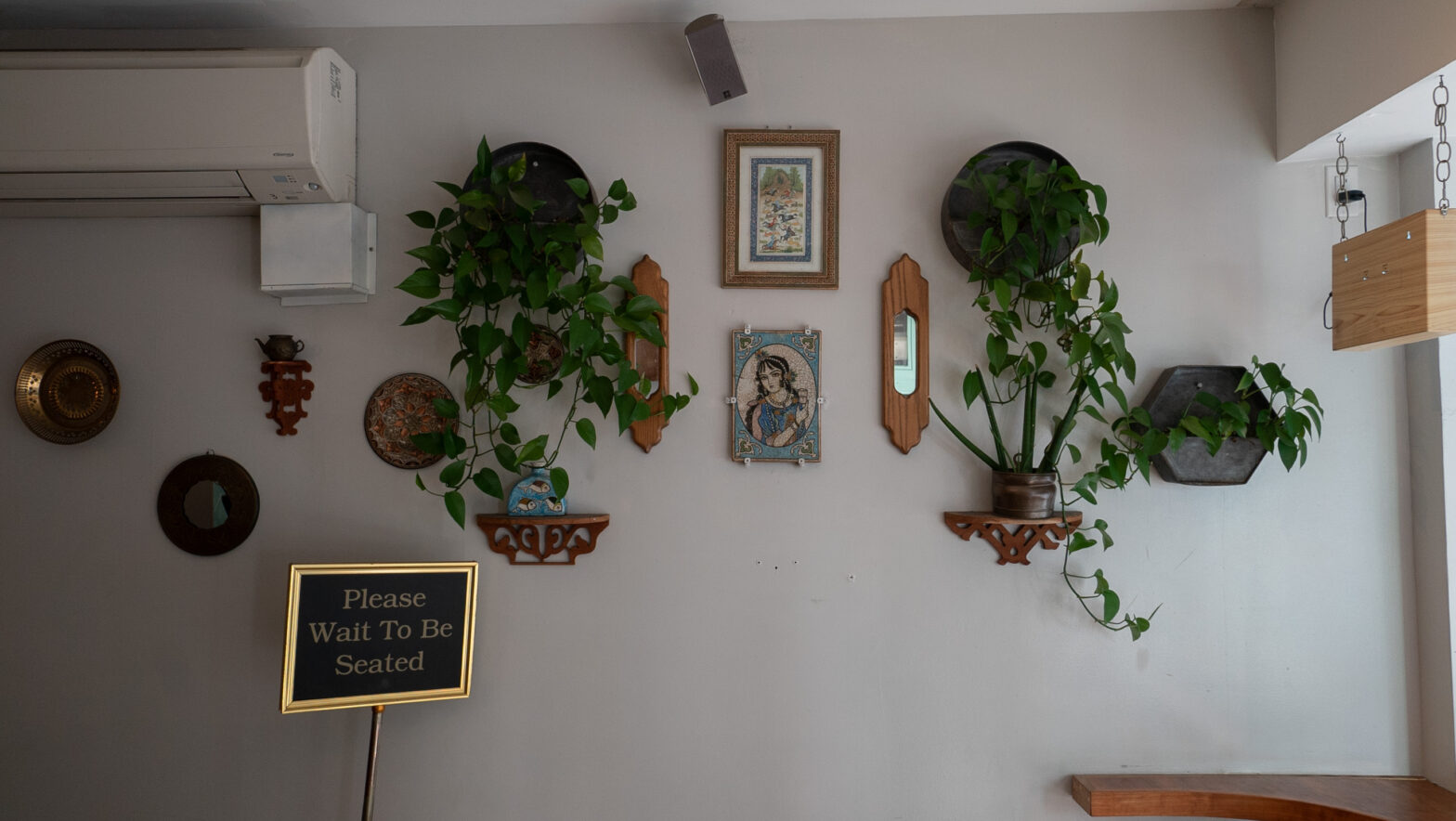At the core of Kubeh, a Middle Eastern restaurant in the West Village, is the celebration of community. It is cooked into the history of the restaurant’s namesake dish, which consists of beef or vegetable dumplings in a beet- or lemon-based broth.
In the 1950s, Jewish immigrants from Iraq and Kurdistan brought the dish with them to Israel, where it quickly became a staple of Israeli cuisine. The recipe goes back hundreds, if not thousands, of years, and has been carefully passed down from generation to generation. Although it takes hours to make, Iraqi and Kurdish Jews have kept the recipe alive even during times of political strife and meat scarcity.
The dining room at Kubeh warmly invites you in with its blue tiling, lush tapestries, and hanging plants— homey and Mediterranean. For good weather, or a more Covid-conscious crowd, the outdoor dining area is also cozy.

One would imagine that the star of this restaurant would be its kubeh, but the menu’s strengths lie in the Mediterranean mezes (or appetizers). It’s a good idea to order many of them, because you will not want to share. The charred eggplant ($15) served beside a blanket of tahini, is plump and smoky, filled with slivered almonds, chickpeas, and bejeweled with pomegranate seeds that brighten each bite. It is served with pillowy pita steaming in a paper bag—they also offer a gluten-free option for an extra $2, a gesture so rare that you may be able to overlook the fact it is chewier and much less pillowy.

Photo by Isabelle Bouvier
Alongside the eggplant, the shrimp plate ($16) shines as well: three enormous shrimps dry rubbed with smoked paprika lounge in green tahini and hummus, accompanied by a few coins of red pepper. The seared halloumi ($13) sits in golden honey, its sweetness wonderfully countered by a generous sprinkling of rosemary. Each dish is clearly labeled as vegan, vegetarian, or gluten-free, making it accessible for anyone in your group.
Chef Melanie Shurka of Kubeh is a born-and-raised New Yorker of Israeli-Iranian and Ashkenazi Jewish descent. She first tried kubeh while studying law in Israel in the 2010s and became so enamored that she shifted the trajectory of her career. She returned to New York to work front-of-house in restaurants while learning how to cook. When she decided to open her own restaurant, she studied her own family’s cooking, then traveled to Israel to spend weeks learning different versions of kubeh from several female chefs. In 2017, these collaborations culminated in the opening of Kubeh, the first restaurant in the United States dedicated to the dish.
Here, you build your own version by choosing your dumpling — either the Iraqi mushroom and vegetable ($20) or the slow-cooked beef ($21), both reminiscent of something a loving grandmother might make. Then pick your broth — either the hamusta broth, infused with swiss chard, zucchini, and lemon, or the beet-red selek broth with celery. Upon hearing it was our first time trying kubeh, the server kindly explained that the dish is best eaten by tasting the broth, adding schug (a spiced sauce of cilantro, parsley, and jalapenos) to taste, then opening the dumpling to allow the filling to mingle with the broth and create a new texture. While hearty and warm, the kubeh did not compare to the mezes we had filled up on.
The chicken shawarma ($28) is equally satisfying and a good portion for the price, but is not exciting enough to distract from conversation. All the meat is sourced from small family farms, adding to the restaurant’s intimate network, and is completely free of hormones and antibiotics.

For dessert, among options like baklava ($11), a date bar ($11), and knafeh ($14), the unassuming brownie ($13) will catch your attention. It arrives warm on a swipe of ganache, crowned with cream and a healthy scoop of Turkish ice cream that is subtly bitter with a hint of cardamom—the whole affair sprinkled with slices of smoked almonds.
Down to the desert, you can taste the personal connections Shurka made over the years. By dining at Kubeh, you become part of this inviting community.
Kubeh is located at 464 6th Ave., New York, NY 10011, between 11th and 12th streets.







